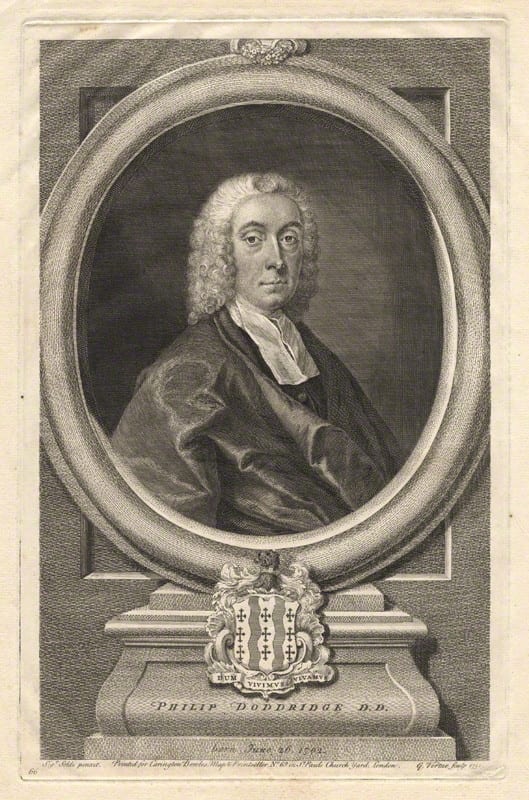What, then, must be the inevitable character and influence of this New Belief, which is to supplant Christianity and all existing religions? Its ultimate object is a blind, unconscious Force, without vision, without reason, without righteousness, without will, without love; producing all, foreseeing naught; moving by a necessity which is but another name for chance, and by a chance which is but another name for necessity—for a blind necessity is a necessity loaded with caprice. In “this enormous machine of the universe,” says Strauss (ii. 213), “amid the incessant whirl and hiss of its jagged iron wheels, amid the deafening crash of its ponderous stamps and hammers, in the midst of this terrific commotion, man finds himself placed helpless and defenceless, not secure for a moment that on some unforeseen motion a wheel may not seize and rend him or a hammer crush him to powder. This feeling of being abandoned to fate is at first really horrible. But of what avail to delude ourselves about it? Our wish cannot remake the world, and our understanding shows us that it is in fact such a machine.” And the only consolation he can suggest is, that we should get accustomed to feeling resigned and happy.
Such, then, according to the New Faith, is wisdom, and here is the place of understanding. The abyss saith, It is in in me. It is in that awful depth, in those Blind Forces. And this is the substance of that “rational” belief, the last and highest product of “scientific thought,” which is to reform and supersede that effete superstition called Christianity. An unconscious Universe instead of the Father of all; Fate instead of Providence; a sheer submission to destiny instead of love to a holy and wise and loving God; the laws of nature instead of the law of righteousness; self-reliance instead of pardon and trust; the law of evolution instead of an Incarnate Redeemer; and in place of immortality utter oblivion. All religion, all morality must be refashioned; for all ideas of reason, yea, and reason itself, all ethical precepts, yea, and conscience itself, can have no absolute and permanent worth; since they are but evanescent and necessary products of that o’ermastering Force, which is above all, and through all, and in all. And as no man can grasp its nature, so no man can foresee what may or may not be yet evolved out of the recesses of its unfathomable, unconscious and irrational being.
A generation drugged with such a fell delusion will change the face of the earth. Especially in our own country, where material prosperity is so rife and seductive, and material necessities are so urgent and constant—if to these be added the concentration of a scientific and aggressive materialism, and our whole theory of life be transmuted by its incantations—no imagination can forecast its perils and no wisdom curb its riotous excesses. For nothing will be sacred to it; there is no hallowed word it will not scoffingly transform; there is no institution of church or state it will not destroy and reshape; the only law it knows is the tyrant’s maxim, that might makes right. Neither strength nor beauty can be in its sanctuary. Let the race be thoroughly taught in this new creed, blinded to the supreme light of reason and the imperative obligations of conscience, indifferent to God and to eternal life, and it will be ready to perish. To the most cultured, life will be only a narrow realism; for the mass of mankind there is left chiefly a fierce struggle for wealth and power and pleasure, with the survival of the strongest. And this New Faith is, after all, but a revival of the oldest form of the most degrading unbelief; it cuts off the wings of the soul, drags it down to earth, and extorts from it the reluctant and despairing confession, that all that is left it is a dogged purpose to submit to annihilation, as do the beasts that perish. If a brute could become conscious, it could not have any less religion.
Henry Boynton Smith, “The New Faith of Strauss,” in Faith and Philosophy: Discourses and Essays (New York: Charles Scribner’s Sons, 1886), pp. 485-87.



